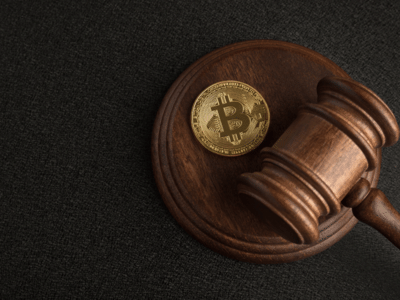With the dust seemingly settled on the $235 Mn crypto heist at WazirX, the Madras High Court (HC) has now taken a proactive step to define what a cryptocurrency is in the Indian context.
In a landmark ruling that could redefine India’s legal approach to digital assets, the Madras HC has held that cryptocurrency qualifies as “property” under Indian law — capable of being owned, enjoyed, transferred, and held in trust.
The judgment, delivered by Justice N Anand Venkatesh, came during a case involving Zanmai Labs Private Limited, the operator of crypto exchange WazirX, and an investor whose 3,532.30 XRP tokens were frozen after the infamous July cyberattack.
Further, the court restrained the company and its directors from touching the applicant’s XRP holdings until a final decision is reached by the arbitral tribunal, granting the investor interim protection from interference.
“The asset held by the applicant stood eroded substantially, the applicant becomes a vulnerable party, who will be entitled for a protection. This is more so since the main issue with respect to the action initiated by the Zettai and its liquidation proceedings before the Singapore High Court and whether it will have a binding effect on the applicant, is a core question, which will be dealt with by the Arbitral Tribunal. Therefore, the applicant will be certainly entitled to an interim protection in exercise of jurisdiction under Section 9 of the Act,” the order read.
Terming the ruling a turning point for India’s crypto ecosystem, legal experts said that the new judgement grants investors ownership rights and legal recourse against fraud or exchange failures.
The new order also establishes that Indian courts have jurisdiction over crypto-related disputes, even when platforms operate across borders — a significant step toward mainstream legal recognition of digital assets.
India’s Crypto Tryst: From Speculation To PropertyThe court observed that, while cryptocurrencies are not legal tender, they nonetheless possess “the essential characteristics of property”, namely, identifiability, exclusivity, and transferability.
“…There can be no doubt that “crypto currency” is a property. It is not a tangible property nor is it a currency. However, it is a property, which is capable of being enjoyed and possessed (in a beneficial form). It is capable of being held in trust,” the court order read.
The bench clarified that crypto investments are not speculative transactions, citing Section 2(47A) of the Income Tax Act, which defines them as virtual digital assets (VDAs). This reinforces the Income Tax Department’s position that assets like Bitcoin, Ether, and XRP can be taxed and treated as property, despite lacking status as currency.
It must be noted that the regulatory authorities in India have maintained a cautious but permissive stance on cryptocurrency — allowing ownership and trading of VDAs while maintaining that they are not legal tender.
The government has not banned crypto activities outright. Instead, it has brought digital assets under a strict compliance and taxation regime. Profits from VDA transactions are taxed at a flat 30%, with 1% TDS on every trade, and losses cannot be offset. The Finance Ministry has also extended the Prevention of Money Laundering Act (PMLA) to crypto platforms, requiring KYC and transaction reporting akin to financial institutions.
Besides, the central government has also been reported to be working on regulating crypto in recent times. Earlier in June, the Indian government was reported to be working on releasing a detailed discussion paper on the policy framework options for crypto assets in June. However, that didn’t happen.
Highlighting concerns over its economic implications, the Supreme Court has alsoenquired about the delays in formulating cryptocurrency regulations earlier in May.
While we are yet to see a comprehensive crypto framework, policymakers have signalled openness to global coordination on digital asset regulation through forums like the G20 and IMF. The recent Madras High Court ruling recognising cryptocurrency as “property” capable of ownership and trust adds legal clarity, even as the RBI continues to emphasise caution over adoption.
The WazirX Case That Sparked ItThe dispute arose when a Chennai-based investor’s crypto holdings were frozen in the aftermath of the hack at WazirX. The crypto heist, which was allegedly undertaken by North Korean hackers, led to investors onWazirX losing close to $235 Mn last year.
The court noted that since the investor used funds from a Kotak Mahindra Bank account in Chennai, granting the HC territorial jurisdiction (as the part of the cause of action arose in India). The interim order also restrained WazirX and its directors from redistributing or reallocating the frozen tokens until arbitration concludes.
As of now, WazirX is working towards issuance of recovery tokens to impacted creditors. According to the company website, it will issue recovery tokens on the value of their relevant claims in proportion to the aggregate value of all relevant claims.
“This phased rollout will help restore liquidity safely, confirm technical stability, and ensure a gradual and reliable return to normal trading across all market pairs,” as per WazirX.
After a hiatus that lasted more than a year, WazirX restarted operations on October 24. To avoid any such incidents in the future, the cryptocurrency exchange has partnered with BitGo, which provides infrastructure and security services for digital assets such as cryptocurrency coins and NFT.
The post Cryptos Qualify As Property Under Indian Law: Madras HC appeared first on Inc42 Media.
You may also like

Govt announces Rashtriya Vigyan Puraskar honouring scientific achievements

Need to be ready for war-like situation, with own arms: Rajnath Singh

Mehdi Hasan trolls Elon Musk over Zohran Mamdani remark: 'Worst person you know just...'

Jurgen Klopp already gave Unai Emery clear message on Harvey Elliott and Liverpool return

Moscow ready to ramp up LNG supplies to India







